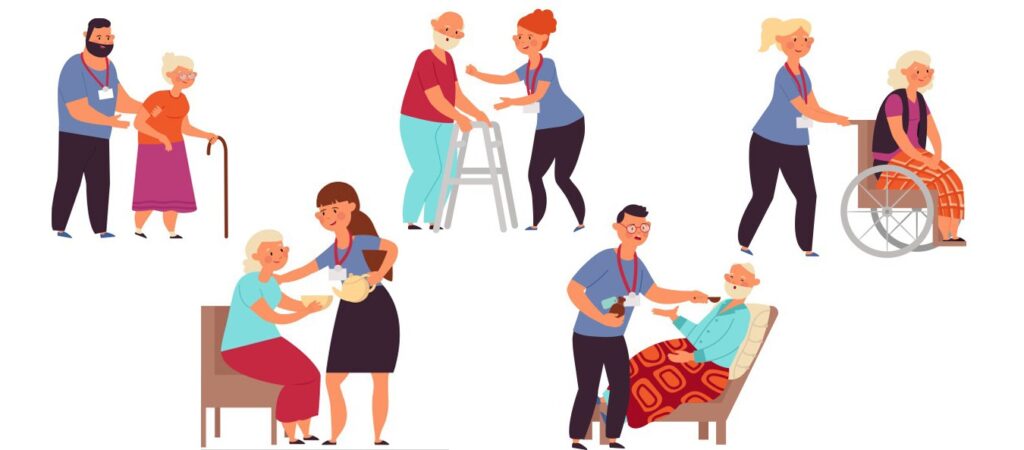An integrated care system for older people means that older adults get the health care they need – where and when they need it.
What is Integrated Healthcare?
Integrated health care, often referred to as interdisciplinary health care, is an approach characterized by a high degree of collaboration and communication among health professionals. What makes integrated health care unique is the sharing among team members of information related to patient care and the establishment of a comprehensive treatment plan to address the biological, psychological, and social needs of the patient. The interdisciplinary health care team includes a diverse group of members (e.g., physicians, psychologists, social workers, occupational therapists, and physical therapists), depending on the needs of the individual.
Who benefits from Integrated Healthcare
The benefits of an integrated health care approach extend to patients, caregivers, health care providers, and the health care system at large. Research indicates that integrated health care models are effective in reducing depressive symptoms in older adults. Further evidence also suggests that coordinated care, which integrates psychologists and other mental health providers within primary care settings, can enhance access to services, improve quality of care, and lower overall health care expenditures.
In what setting can Integrated Healthcare be used
Integrated health care delivery can occur in multiple settings to benefit the aging population. These settings include primary care, specialized medical settings (e.g., rehabilitation units, cardiology, and surgical centres), long-term care settings, and community based health and social service sites. The integrated health care team often functions differently according to the setting; however, mutual respect and communication are critical at all sites
Why is Integrated Healthcare so important to older adults
- Complex care necessitates multiple treatments.
- Without coordination of care, different treatments often result in unforeseen negative outcomes.
- Behavioural health is a key aspect of chronic disease self-management.
- Treatment of comorbid mental and physical health concerns results in the best outcomes for older adults.
- Sensitivity to issues of multicultural diversity and marginalization (e.g., ageism) is a key component of care.
What Contributions do Psychologists make to an Integrated Healthcare team
- Conduct cognitive, capacity, diagnostic, and personality assessments that differentiate normal aging from pathology, side effects of medications, adjustment reactions, or combinations of these problems.
- Offer behavioural health assessment and treatment that provide older adults with the skills necessary to effectively manage their chronic conditions.
- Diagnose and treat mental and behavioural health problems (e.g., depression, suicide risk, anxiety disorders, addiction, and insomnia).
- Offer consultation and recommendations to family members, significant others, and other health care providers.
- Contribute research expertise to the design, implementation, and evaluation of team care and patient outcomes.
- Develop interventions that are responsive to specific individual and community characteristics that may impact the treatment plan.
In conclusion, integrated healthcare systems are critical for meeting the complex and diverse demands of older persons. These systems ensure that older persons receive comprehensive care that satisfies their physical, psychological, and social requirements by encouraging collaboration and communication among a varied group of health providers. The advantages of this strategy extend beyond the patients, benefiting carers, healthcare providers, and the entire healthcare system by boosting access to services, improving treatment quality, and lowering costs.
Integrated healthcare can be used efficiently in a variety of settings, including primary care, specialised medical centres, and community-based programs. Psychologists play a significant role in these teams because they provide critical assessments, therapies, and interventions that address older individual’s mental and behavioural health, resulting in considerably improved health outcomes and general well-being.





